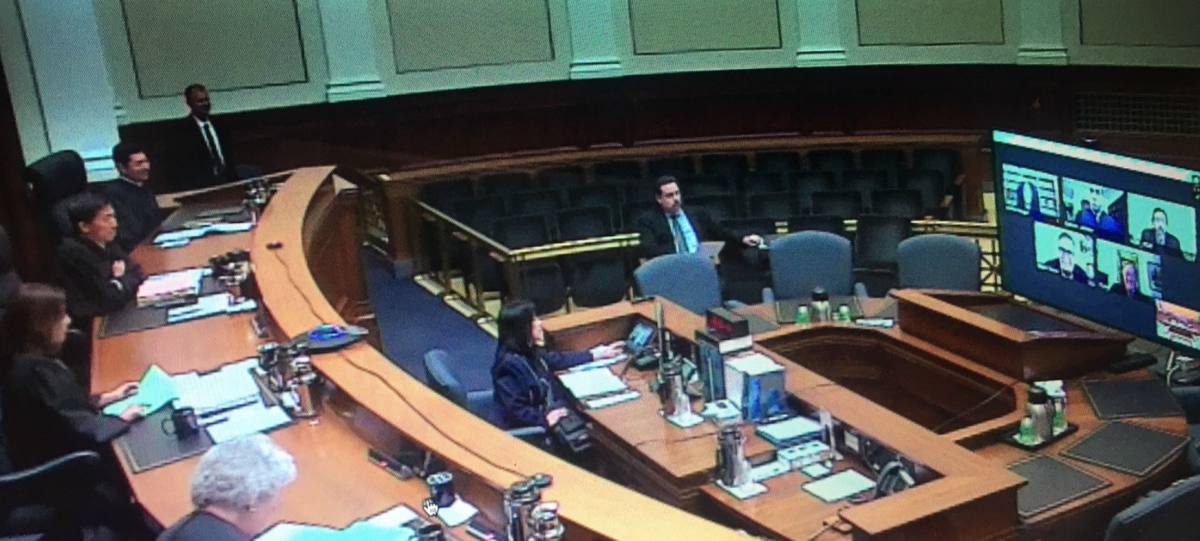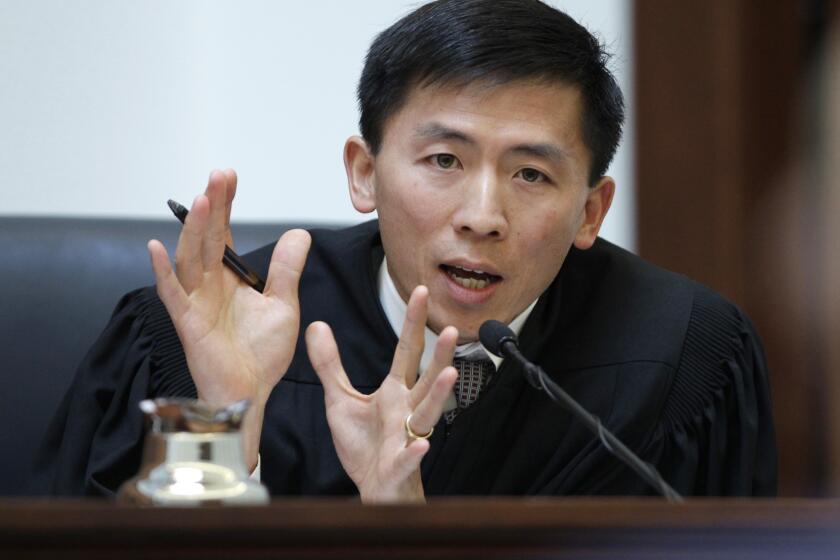California’s top court declines to overhaul death penalty

- Share via
SAN FRANCISCO — The California Supreme Court on Thursday decided to leave the state’s death penalty law intact, refusing an entreaty from Gov. Gavin Newsom that would have overturned scores of death sentences.
In a unanimous decision, the state’s highest court said there was little legal support under state law for overhauling the law, as opponents of capital punishment urged. In fact, the court said, some of the precedents cited by defense lawyers actually undercut their position.
Defense lawyers had argued the state’s capital punishment law was unconstitutional because it failed to require jurors to unanimously agree beyond a reasonable doubt on the reasons why a defendant should be sentenced to death instead of life without possibility of parole.
A decision to impose the death penalty also should be made beyond a reasonable doubt, the standard now used in deciding guilt, the lawyers said.
If the court had agreed, hundreds — if not all — death sentences would have had to be overturned because such decisions generally apply retroactively.
Hundreds of death penalty sentences in California could be overturned, depending on how the state Supreme Court rules on arguments it heard Wednesday.
Justice Goodwin Liu, who wrote the ruling, said some of the cases cited by defense attorneys did not support their position. “If anything,” he said, they suggested “the ultimate penalty determination is entirely within the discretion of the jury.”
The court did not reject the constitutional arguments raised by Newsom but said they did “not bear directly on the specific state law questions before us.”
In a concurring opinion, Liu said there was enough U.S. Supreme Court precedent to warrant reconsidering California’s death penalty rules in future cases. He noted that some other states have changed their capital punishment requirements as a result of more recent Supreme Court rulings on the 6th Amendment, which protects the trial rights of the criminally accused.
“Although today’s decision does not revisit this issue, I believe the issue should be reexamined in a case where it is more fully developed,” Liu wrote. “The constitutionality of our death penalty scheme in light of two decades of evolving 6th Amendment jurisprudence deserves careful and thorough reconsideration.”
The issue arose in an appeal brought by condemned inmate Don’te Lamont McDaniel, convicted of killing two people in 2004 and wounding two witnesses in a drug dispute at South Los Angeles’ Nickerson Gardens public housing project. The deceased were 33-year-old George Brooks and Brooks’ 52-year-old cousin, Annette Anderson.
The court instead upheld his death sentence Thursday.
In written arguments to the court, Newsom assailed the death penalty as racist and cited study after study that found the system discriminated against Black and Latino defendants. He did not ask the court to abolish the death penalty, a move that voters have rejected, but to change how it was administered.
The state high court has long dismissed some of the arguments that death penalty opponents raised in McDaniel’s case. But death penalty supporters became worried when the court asked for written arguments on the constitutional questions.
The court also has changed substantially in recent years. Five of the seven justices were appointed by Newsom and his predecessor, Gov. Jerry Brown, both opponents of the death penalty.
John Mills, who represented two scholars of the state Constitution as friends of the court, said the ruling and Liu’s concurrence have provided a road map for future challenges that may be more likely to succeed.
He predicted death row inmates will soon bring the kinds of claims that Liu said might be persuasive but were not at issue in McDaniel’s appeal.
“He was laying out some concerns that were not presented by Mr. McDaniel about the operations of the California death penalty statue that he is concerned may violate the federal Constitution,” Mills said. “Those issues remain an open question in California because they were not litigated in this case.”
Mills said the Legislature also could change the law to bring more fairness to the penalty phase of death penalty trials by adopting new rules.
California has more than 700 inmates on death row, but legal challenges have stymied executions. Only 13 inmates have been executed since 1992, and Newsom imposed a moratorium on executions during his time in office.
More to Read
Sign up for Essential California
The most important California stories and recommendations in your inbox every morning.
You may occasionally receive promotional content from the Los Angeles Times.












